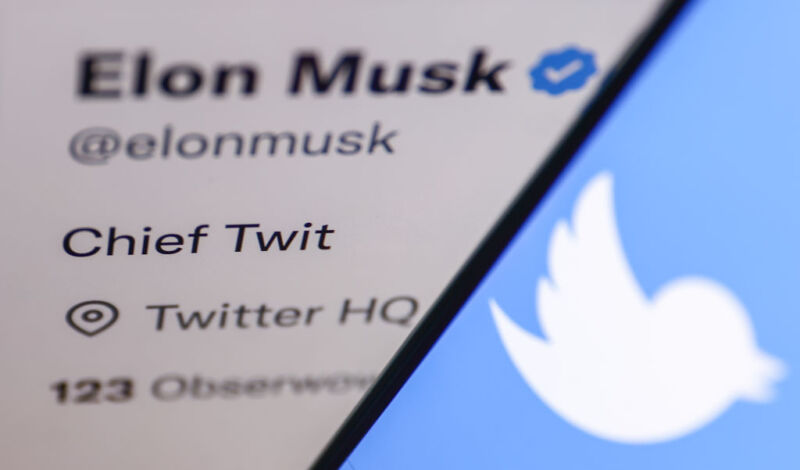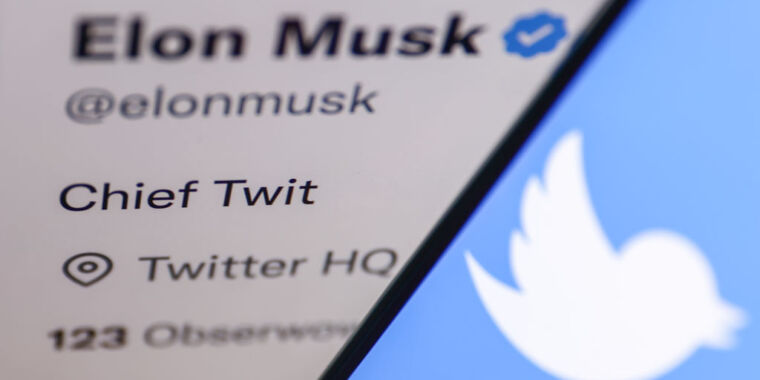
Advertisers pulling out of Twitter because the platform remains unstable under Elon Musk’s leadership have many reasons to worry about brand safety, Reuters reported.
Major brands that interrupt advertising include Audi of America, United Airlines, General Mills, General Motors, Volkswagen, Modelez International (which makes popular products like Oreos), and Omnicon (which manages ads for brands like McDonalds and Apple). Aside from the damage of brand impersonations from the Twitter Blue verification scandal, spokespersons for these groups have pointed to increases in hate speech on the platform and cuts in Twitter support staff as deeply concerning.
“We felt there was a risk that our ads would appear next to the wrong messages,” Dirk Van de Put, CEO of Mondelez, told Reuters.
The owner of Hite Digital, a Miami-based advertising agency that manages campaigns for major brands, Molly Lopez confirmed to Ars that it wasn’t just brand safety that led her to instruct all 18 of her clients to track ad spend on Twitter this morning. interrupt. As Musk continues to lay off and lay off Twitter staff, she is also concerned about cybersecurity issues and the lack of Twitter support, recognizing that fewer employees are likely to deal with common advertiser issues.
“I am very confident that bad actors, whether foreign or domestic, absolutely want to take advantage of the fact that one of the largest tech companies in the world may have lost more than half of its current workforce overnight. lost,” Lopez told Ars. .
Lopez believes it is not safe for customers to store credit card information on Twitter at this time. She also worries that when there are problems with advertising, such as a brand overspending or misdelivering, there may not seem to be any support staff available to resolve campaign issues quickly. While previously these kinds of problems could be solved in a week, Lopez said sending an email to Twitter is currently like screaming for help in a black hole. No response is expected, and after 12 years of leading digital campaigns for brands, Lopez told Ars that this is not a way for brands to do business comfortably.
“Things are spreading extremely fast and without the prior systems and checks and balances that were in place before the Musk acquisition, which gave brands at least a little bit of help fighting misinformation and impersonation,” Lopez told Ars.
“The current situation is unpredictable and chaotic, and bad actors and unsafe behavior can thrive in such an environment,” Interpublic Group, one of the largest advertising companies, wrote in an email to clients, according to The Wall Street Journal. “At this point, we can’t say for sure that Twitter is a safe place for brands.”
However, Reuters reported that not every major brand is fleeing Twitter. L’Oréal denied reports it had paused advertising, Gilead Sciences (an HIV drug maker) said it is still running ads as it monitors the situation, and recently Musk’s company SpaceX just started advertising on Twitter .
Lopez told Ars that Twitter has been most beneficial to brands she’s advised that have loyal, niche customers. She said that while Twitter has seemingly become a chaotic place for all brands due to impersonation, the only brands that have experienced some sort of controversy in the past seem to be most at risk of reputational damage. Other brands with fewer scandals in their past have fewer concerns and probably fewer reasons to leave the platform. At least one of the brands Lopez manages, which she describes as a food and beverage brand hit hard by the Twitter fake account scandal, is considering taking legal action against Twitter.
As advertisers and ad agencies continue to watch the Twitter chaos, Lopez has instructed her clients who pause ad spend on Twitter to redirect that money to some of Twitter’s most obvious competitors in the attention economy: Meta, TikTok and Reddit. Earlier this year, CNBC predicted that’s exactly what would happen if Musk took over.

